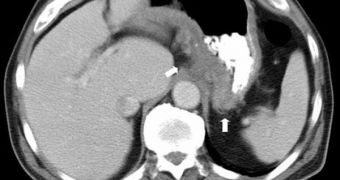In a recent study published online in the latest edition of the journal PLoS ONE, scientists believe they've identified one of the environmental risk factors that cause the terrible Crohn's Disease (CD), about which very little is currently known. They hypothesized that prolonged exposure to refrigerated food during childhood might have something to do with the onset of the affliction, so they conducted a pilot study aimed at discovering any potential connection between the two.
During the study, 199 CD patients were asked to fill in a number of questionnaires, as were 207 age-matched patients, suffering from irritable bowel syndrome (IBS), who were used as a control group. Fatemeh Malekzadeh, a CD expert from the University of Tehran Medical Sciences Digestive Disease Research Center, in Tehran, says that “Comparable results were obtained looking for the exposure to freezer at home. Finally, among the other recorded items reflecting the hygiene and comfort at home, we also found personal television, car and washing machine associated with CD.”
“This study supports the opinion that CD is associated with exposure to domestic refrigeration, among other household factors, during childhood,” he adds.
“No differences were seen with regard to the living in rural/urban area, the presence of pets at home, the size of sibships or the number of children sharing the same bedroom. Interestingly, we obtained results comparable with those seen for the refrigerator when looking at the exposure to freezer at home. Indeed 65% of patients and 50% of controls were exposed since birth and patients were exposed earlier than controls,” the paper says.
Crohn's disease affects the human digestive tract, causing chronic or relapsing inflammation, which can have serious consequences for patients. Other than cigarette smoke, there are as of yet no environmental factors that trigger the disease. On the other hand, several genetic factors have been discovered over the last years, and physicians now know that predisposition to the disease can be transmitted from mother to infant.

 14 DAY TRIAL //
14 DAY TRIAL //